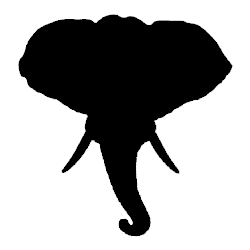UGANDA
Uganda should be commended for major progress in tackling ivory trafficking; however, there remain important actions which need to be implemented to tackle ivory trade flows from and through Uganda.



Is there a need to revise the existing NIAP or develop a new one? ‘YES‘

BEST PRACTICE
After entering the NIAP process, Uganda has made progress in addressing a number of issues. This was recognised in the ETIS report to CoP17, which noted that there had been greater success in interdicting large-scale movements of ivory. Uganda has acknowledged the positive benefits of the NIAP process within the country: raising awareness among the different enforcement agencies about the importance of wildlife conservation, strengthening coordination and collaboration at national and regional level and improving political support to tackle wildlife crime.
In cooperation with UNODC, a ‘Points to Prove’ Rapid Reference guide has been developed for Wildlife Crimes prosecutors. A specialised wildlife crime court has been created to address possible corruption issues within the wider court system and expert witnesses have been used to support major prosecutions. There have been improvements in enforcement controls and efficiency, reflected in the rise in prosecutions and convictions. The Government has signed a 10-year MoU with the NGO Natural Resources Conservation Network to prosecute wildlife trade cases, greatly increasing prosecution rates.
A National Wildlife Crime Coordination Task Force has been created to enhance cooperation among Government agencies. The Uganda Wildlife Authority has developed an online database to record information about arrested suspects.
The ETIS report to CoP17 comments that criminal suspects have been arrested in conjunction with some of the seizures and that, notably, Chinese nationals have been arrested in Uganda (along with Kenya and Tanzania), which demonstrates effective regional and international law enforcement collaboration.
KEY CONCERNS
Major transit hub from Central and East Africa
EIA analysis of large-scale ivory seizures reveals that since 2000, Uganda features in the top 10 most significant countries in terms of the number of large-scale seizures and weight of ivory seized. Ivory in transit through Uganda is subject to weaker controls than for goods destined for the country.
According to the ETIS report to CoP17: “Since the CoP16 analysis, organised criminal elements operating in Kenya, Tanzania and Uganda have continued to move large quantities of ivory into, between, and out of these three East African countries, which collectively constitutes the greatest illicit ivory trade flows out of Africa in the period 2009 through 2014.” The report noted that ivory from Mozambique, Kenya, Malawi, Zambia and the DRC was part of this traffic.
Limited interagency collaboration
According to a report by TRAFFIC in 2018, a principal need is to develop a “nationally co-ordinated system of institutions, organizations, agencies and concerned stakeholders”. The National Wildlife Crime Coordination Task Force may go some way to addressing this need but so far as we are aware, it has not yet undertaken any operations.
Weak sanctions and penalties
The TRAFFIC report in 2018 noted “Intrinsic weakness in legislation especially in sanctions and penalties hamper effectiveness of current efforts to strengthen enforcement and co-operation in fighting wildlife crime (the Wildlife Act 1996 does not provide proportionate penalties for wildlife crime).” The report also noted the “suspected presence of a very powerful transnational criminal syndicate involving foreign nationals collecting ivory and other high-value wildlife products”, which emphasises the need to improve investigation and prosecution of those involved in such syndicates (with strict penalties available to the courts), as well as greater international cooperation and use of financial investigations.
Some of these issues will be addressed when the Uganda Wildlife Bill (2017) becomes law (the Bill is currently subject to stakeholder consultation and is hoped to reach Parliament by the end of 2019). The Bill provides for deterrent sentences for poaching and wildlife trafficking of up to 20 years. The Bill will also close a major loophole by making possession of ivory (and rhino horn) an offence. However, in the absence of sentencing guidelines magistrates/judges will have discretion to impose weak sentences, especially if corruption is not tackled effectively.
Government stockpile fuelling illegal trade
There were thefts from Uganda’s ivory stockpile in 2014 of 1,200kg and in 2017 of 1,300kg. Uganda’s Government-owned ivory stockpile is therefore a major source for illicit ivory entering the black market. A new ivory strong room has been created equipped with CCT cameras and in 2016 the Uganda Wildlife Authority (UWA) partnered with Stop Ivory to conduct a full inventory of the ivory stockpile held by the UWA, the Aviation Police and the Uganda Revenue Authority.
Corruption
Members of the police and judiciary are widely perceived as corrupt and there have been allegations that security forces in Uganda have prevented exposure of officers engaged in illegal wildlife crime. The creation of the specialised wildlife crime court should go some way to addressing this problem, but more will need to be done to target corruption among other public officials (e.g. within customs).
Insufficient resources for wildlife crime enforcement
Current resources do not match the scale of wildlife crime and the Elephant Conservation Action Plan for Uganda 2016-26 identifies inadequate financial resources as an internal weakness hampering effective enforcement and conservation.
RECOMMENDATIONS FOR NIAP REVISION / PRIORITY AREAS OF IMPLEMENTATION:
- Strengthen detection activities focused on goods in transit
- Make it mandatory for all authorities and agencies to include measures to tackle illegal ivory trade in their operational guidelines and programmes
- Disrupt and prosecute transnational wildlife crime syndicates in cooperation with relevant countries including China and Laos and neighbouring countries such as DRC, Kenya and Tanzania
- Ensure the Wildlife Bill 2017 becomes law as soon as possible and relevant bodies including the judiciary and prosecutors are educated about the changes
- Target corruption among public officials, especially at border points
- Dispose of all ivory stocks routinely to prevent further leakage into illegal trade
Key indicators of NIAP progress
